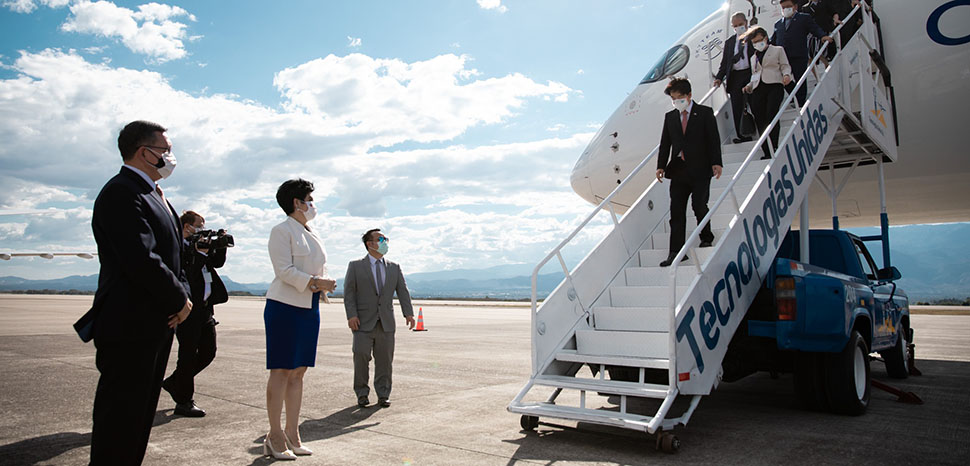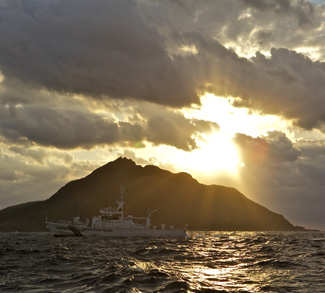On March 14, Honduras President Xiomara Castro announced that she is taking steps to begin official diplomatic relations with China, a move that would sever ties with Taiwan. Honduras is one of just 14 countries that still diplomatically recognizes Taipei over Beijing, but that now looks set to change.
The diplomatic situation for Taiwan has worsened since President Tsai Ing-wen took office in 2016. During her first presidency, seven countries had broken off relations with Taipei in favor of Beijing. In response, in September 2018, the U.S. recalled its top diplomats in the Dominican Republic, El Salvador and Panama over these countries’ decision to no longer recognize Taiwan.
Since Tsai was reelected on January 11, 2020, Taipei’s diplomatic and public relations campaign has drawn fire from Beijing, which dismissed the effort as an attempt to “seek independence under the pretext of the pandemic.” On Dec. 9 2021, Nicaragua announced it was severing diplomatic ties with Taiwan in favor of China. The Taiwanese public responded coldly, mostly due to the “boiling-frog effect” built up by Tsai’s government.
Nicaraguan President Daniel Ortega demanded that Taiwan evacuate all personnel by December 23. Subsequently, Taiwan was forced to hastily donate the former embassy to the Roman Catholic Archdiocese of Managua. Additional collateral damage followed as Nicaragua confiscated and gave China the grounds formerly housing the Taiwanese embassy. Taiwan has condemned Nicaragua for seizing its diplomatic assets and transferring them to Beijing.
Regime changes affecting Taiwan’s diplomacy
Change of Presidents bring different ideologies and policy objectives in Taiwan and across Central America, deciding whether countries remain allied to Taipei or Beijing. In Taiwan, during the eight years of Ma Ying–jeou’s tenure (2008–2016), no Central America countries switched sides to Beijing except the restoration of diplomatic ties between China and Gambia on March 17, 2016. This is quite unlike Tsai Ing-wen’s poor diplomatic performance.
In Central America, El Salvador provides example par excellence for the trend. After switching from Taipei to Beijing in 2018, then President Salvador Sanchez Ceren, former member of the left-wing Farabundo Martí National Liberation Front (FMLN), said his government was certain “it was a step in the right direction” that corresponds to “the inevitable trends of our time.”
Another example from Sanchez’s successor Nayib Bukele who deepened relations with China. Mary Anastasia O’Grady, columnist for The Wall Street Journal, warned that “even the skilled Tom Shannon hasn’t been able to shine the tarnished image of Nayib Bukele inside the Beltway. The trouble is that while the former American diplomat has been breaking a sweat for the cause on the D.C. lunch and cocktail circuit, Bukele has been courting China and playing footsie with transnational criminal organizations.”
In the United States, although China’s rise had been a concern of the Bush and Obama administrations, it was the Trump administration that really transformed the entire narrative. Its National Security Strategy report, released one month after Trump’s 2017 China visit, changed governmental language about China from that of a “strategic partner” to that of a “strategic competitor.”
Since President Biden took the helm, nothing has fundamentally changed regarding US-China competition. Although Taiwan could sail smoothly diplomatically with the United States as its patron; once against the waves, it could not move forward and could even capsize.
In January 2022, foreign lobby records showed that Guatemala had paid Brian Ballard, a major supporter of former US president Donald Trump, $900,000 to seek influence with US officials. This unusual lobbying contract dated January 12, was paid for by Taiwan. It is not only unusual for one government to be paying the fees for lobbying for another, but it is problematic for two reasons.
First, Taipei’s checkbook diplomacy is poised for a showdown with Washington’s anti-corruption agenda. Guatemala was not invited to participate in Summit for Democracy in December 2021 because of its obstruction of the major US foreign-policy goal. Second, the contract was signed by Alfonso Quiñónez, Guatemala’s ambassador to the US, and Brian Ballard, president of the namesake lobbying firm and a long-time Trump ally. It seems that Taiwan began to bid on Trump’s campaign in 2024. Biden should not save Taiwan from Central America if Taiwan does not serve his own interest.
In Summit of the Americas held in Los Angeles last June, Honduras President Xiomara Castro, along with other four Latin American presidents, didn’t attend because Cuba, Venezuela, and Nicaragua were not invited. It is understandable because, in June 2009, her husband Manuel Zelaya was put on an airplane to Cost Rica, which stopped to refuel at Soto Cano. Soto Cano is a Honduran air base that is home to 600 U.S. soldiers. In the near future, Washington may keep Soto Cano as the US last military base in Latin America, but it can hardly prevent Honduras from switching from Taipei to Beijing.
The views expressed in this article belong to the authors alone and do not necessarily reflect those of Geopoliticalmonitor.com.




